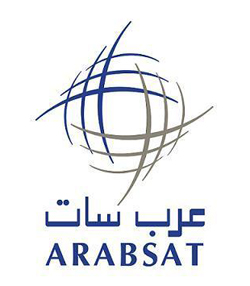U.S. TV for Iran Might Be Free, Doesn’t Have to Be Cheap: View
Programs that go on and on. Shows that lack focus. Graphics and production values that make Iranian state TV look hip by comparison. Why has the U.S.-run Persian News Network been so bad for so long?
It’s not for lack of importance. In the absence of a diplomatic mission for 33 years, America’s principal voice in Iran is the actual Voice of America, the U.S. government-run, multimedia news agency. Especially in these times of high tension over U.S.-led efforts to prevent Iran from achieving nuclear-weapons capability, the U.S. has a strong interest in being heard by Iran’s people. But the VOA’s Persian News Network has fallen far short of that aim. According to a survey last year, only 6 percent of adults in Iran watched a PNN program at least once a week.
Iranians depend on external sources for an objective view of current events. Iranian broadcast networks are completely under state control. With one of the highest concentrations of jailed journalists in the world, the country ranks among the worst in terms of media freedom, according to the watchdog group Freedom House. About 13 percent of the population can regularly access the Internet, but the government makes efforts to filter its content.
From its 2007 start, PNN -- which provides six hours of original, Persian-language TV programming a day, repeated over 24 hours, via satellite TV -- has been pretty lousy. The one notable exception is the hit “Parazit,” introduced in 2009 and inspired by “The Daily Show with Jon Stewart.” An internal 2009 report documented issues of poor technical and journalistic standards that cropped up again in an informal review last year.
The network can ill-afford to be complacent. Since 2010, it has had stiff competition from the British Broadcasting Corporation, whose superior Persian-language service immediately ate up a third of PNN’s 29 percent market share. Later that year, the Iranian government began jamming both signals, forcing PNN and BBC off the satellite to which most Iranian households tune their dishes. Since then, viewers have had to physically manipulate their devices to watch PNN or BBC. Most don’t bother for PNN; in the 2011 viewership survey, its market share plunged from 20 percent to 6 percent. Yet BBC’s actually grew -- from 10 percent to 12 percent.
To its credit, PNN responded to its weaknesses with a fresh program lineup introduced in mid-January. A more diversified mix includes shows on technology, arts and music, and Iran’s economy, breaking up the previous, heavy diet of news and debate. Several unprofessional hosts are gone, and the network’s stronger personalities have been given greater exposure.
Still, whereas BBC Persian offers world-class entertainment, watching PNN feels dutiful. This is unacceptable. At a time when speaking to more than 6 percent of Iranians should be an urgent U.S. priority, the Broadcasting Board of Governors, which oversees VOA, should make producing first-rate television at PNN an imperative. President Barack Obama should bear this in mind when he nominates a replacement for Walter Isaacson, a seasoned media executive who resigned as chairman of the board last month. Isaacson’s predecessor was a politician.
Even on PNN’s new shows, content is sometimes frustratingly unprofessional. For instance, PNN’s technology show, created in response to the popularity of a well-conceived, well-edited tech program on BBC Persian, is slapdash. An episode might consist of a journalist simply meandering around a trade show ogling new gadgets.
If resources aren’t available to make low-quality shows like this one creditable -- the Broadcasting Board of Governors just announced a 2013 budget that would cut VOA’s allocation by $17 million -- the network should cancel them and focus on what it can do well. “Parazit,” whose popularity with Iranian youth provoked state television to produce a number of rival programs mimicking its style, demonstrates what can be done.
In addition to the broadcast, PNN should improve its website. Television remains by far the most important way Iranians consume news, but the Internet is significant, too, especially given jamming of TV satellite signals. Though the government periodically blocks access to PNN’s website, many Iranians have software to breach the firewall.
The PNN site, however, is off-putting. Even without knowing Persian, a user can easily see why the BBC site is better. PNN’s staid look should be ditched for something livelier. And a new design should enable users to easily discern the most important news of the day.
From the start, President Barack Obama has been an advocate for American soft power. With the prospect of a shooting war looming in Iran, there is no more pressing place to deploy that power. When a well-executed show like “Parazit” can begin to undercut the legitimacy of the Iranian regime, there’s no telling what a superlative network could do.

 Preliminary investigations into the jamming of Arabsat satellite transmission shows that it is originating from Ethiopia, Lebanese Telecommunications Minister Nicolas Sahnawi said on Wednesday.
Preliminary investigations into the jamming of Arabsat satellite transmission shows that it is originating from Ethiopia, Lebanese Telecommunications Minister Nicolas Sahnawi said on Wednesday.

